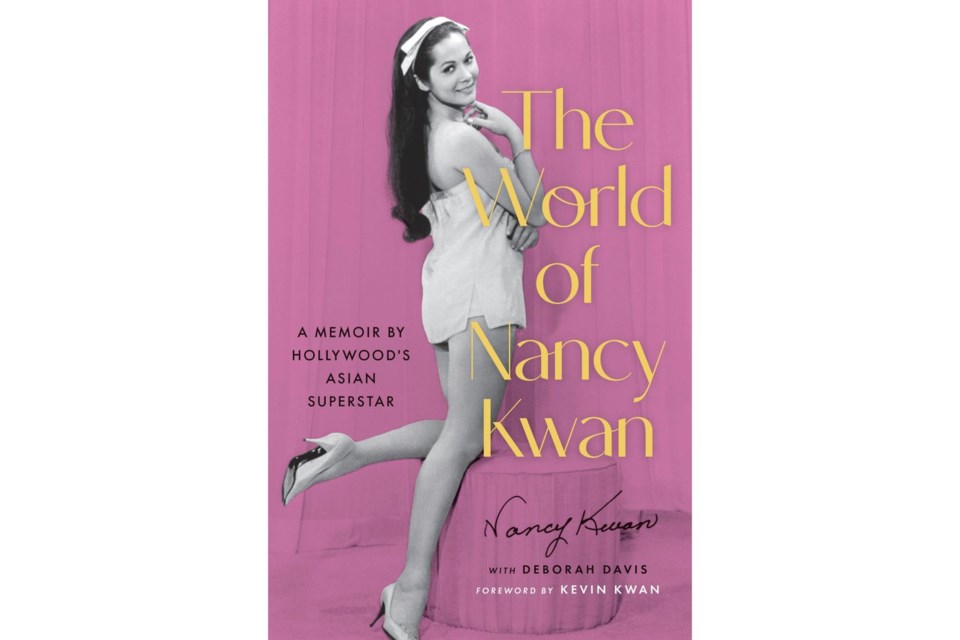Demure, submissive and erotic, Suzie Wong is that bigger-than-life stereotype, that caricature Asian women grew up with in the U.S.
We may have also secretly hoped to play that geisha-like image to win our way . But over the years, some of us grew to resent it, fight it and reject it, hoping to claim our true identity and dignity as a person.
In “The World of Nancy Kwan,” a memoir by the pioneering Hollywood star, we hear from the real-life woman who played Suzie Wong.
We learn an Asian actor getting to play an Asian role was a victory back in those days, as the roles were taken by white actors wearing strange slant-eyed makeup.
Kwan was born in Hong Kong in 1939. Her father was Chinese, an architect with a love for movies. Her mother was English, a model and actor, although she left when Kwan was young, and she was raised by a stepmother. It was hard because being Eurasian was an anomaly, she recalls.
“I’ve broken barriers, celebrated achievements, overcome disappointments and survived tragedies, all part of my remarkable journey from Hong Kong to Hollywood and beyond. This is my story,” she writes in the prologue.
Her book is speckled with the big names of that era, Pat Boone, Katharine Hepburn, Some passages read like a gossip column, such as her accounts of her friendship with
But she also depicts the racial barriers of that period.
All women, especially in Hollywood, were trying to be beautiful and desirable. In fact, being dubbed “the Asian Bardot,” referring to was a genuine compliment.
She talks about how Jack Soo, a Japanese American who portrays a nightclub owner in was incarcerated with other Japanese Americans in internment camps during World War II.
Kwan believes her story is about hard work and advancement despite racism, not succumbing to it.
After all, Asian actors’ roles used to be limited to “Fu Manchu villains, hypersexualized Dragon Ladies and comic buffoons” and “shopkeepers, maids and houseboys,” according to Kwan.
And so getting featured on the cover of Life magazine, wearing a body-hugging cheongsam, counted as a victory.
Another big win is when Ross Hunter, a hot producer, rushes over to her at a Hollywood party and casts her in “Flower Drum Song.”
The musical film shattered stereotypes, she says, by focusing on fashionably dressed, wealthy Asians. Regardless of race, people cherish family, suffer heartbreak, laugh, sing, dance and dream of happiness, she writes.
Kwan calls the work “joyous entertainment with the universal message that whatever our race, we’re all alike.”
Even those who may find that message lacking in addressing the meaning of diversity and Asian American pride will acknowledge there is a lot to learn from Kwan’s history.
She is simply trying to land roles, hopefully good ones that showcase her talent in works by respected directors.
Miyoshi Umeki, her friend and another prominent Asian actor of that period, did not like having to speak pidgin in her roles, but did it because that was her job as a professional.
That kind of pain is the legacy being explored in Kwan’s life.
Being an Asian in America is what she calls “our shared humanity,” in which “East can meet West and possibly make the world a little better.”
___
Yuri Kageyama is on Threads:
___
AP book reviews:
___
This story has been updated to correct the spelling of Katharine Hepburn and Brigitte Bardot's first names.
Yuri Kageyama, The Associated Press



